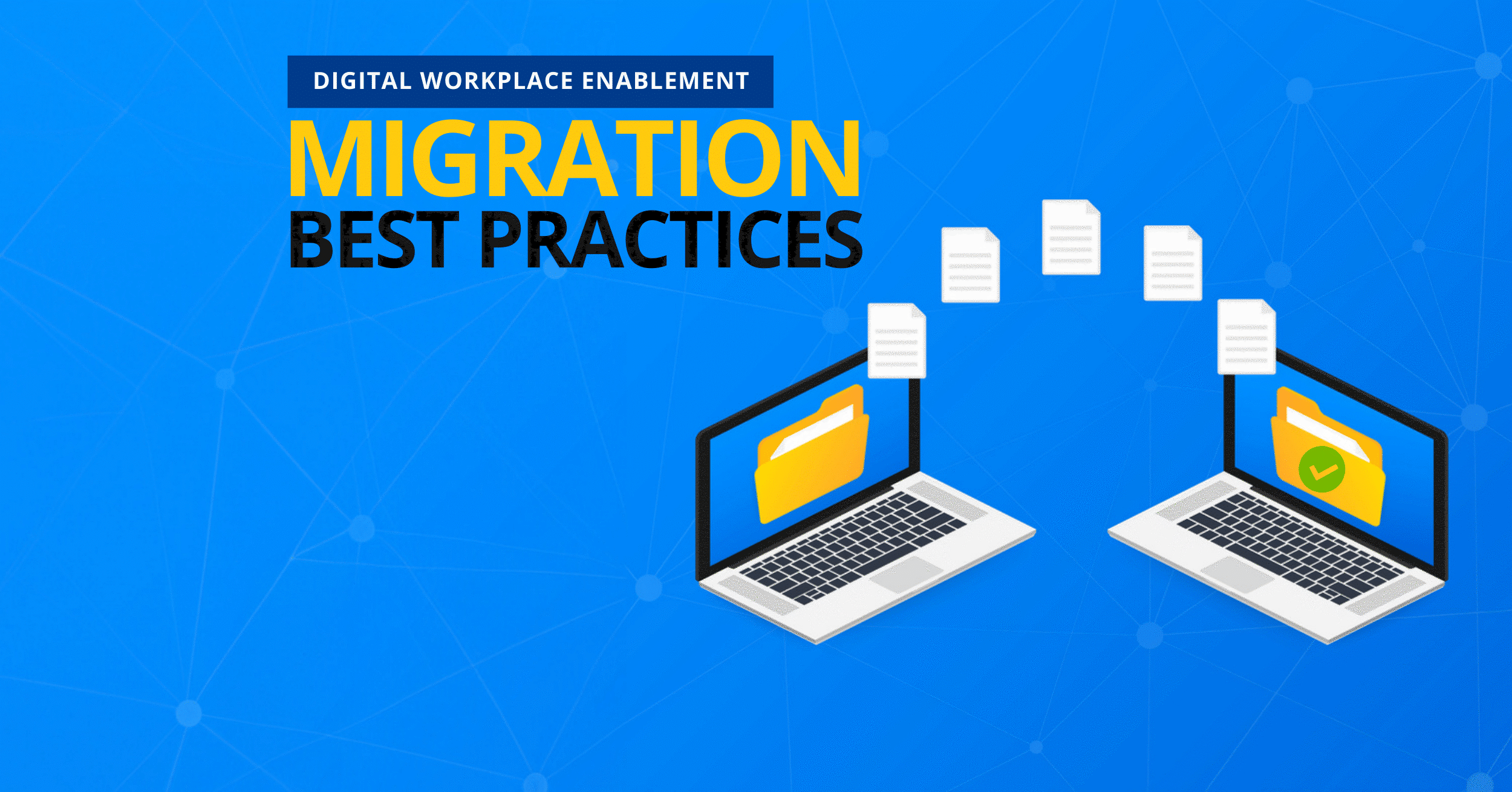Migrating to Office 365: What MSPs NEED to Know First

Learn how to govern your data during when moving to the cloud with our free webinar “Planning for Office 365: Managing Content During Your Migration!“
This is the second post in our How MSPs Can Survive & Thrive ebook series. You can read the others below:
- 4 Simple Tips to Help Your MSP Thrive in Office 365
- 6 Ways to Meet Data Availability Expectations
- 7 Ways MSPs Can Help Clients Avoid Severe Data Regulation Fines
Upgrading to Office 365 comes with a plethora of opportunities for your organization to streamline workflows and collaborate more efficiently. That said, making the move without a plan can leave your data scattered or inaccessible when you need it most. To help mitigate this as much as possible, here’s a quick guide on what MSPs must know before upgrading.
Identify Opportunities for Cloud Consolidation
More and more organizations will be moving from other cloud platforms like Dropbox and Box into Office 365, and occasionally from Office 365 into other platforms. Most won’t want to maintain two cloud office systems when organizations or departments are merged or reorganized in order to avoid unnecessary costs, functionality duplication, and data silos. Identifying and capitalizing on these cloud-to-cloud or tenant-to-tenant migration opportunities is key.
Additionally, you might face situations where employees are using unauthorized cloud solutions or “shadow IT.” MSPs looking to capitalize on future trends will have mechanisms for identifying and migrating shadow IT while also helping customers identify and remediate the root causes.

Know When to Migrate Fast or Launch a Discovery Process
You’ll need to know when it’s best to lift and shift customers cloud files to get the job done quickly, and when a discovery process may be more appropriate. Under a tight deadline or in situations where organizations are coming from other cloud file
shares or have well-classified data, lift and shift is probably your best bet.
Naturally, if you have years and years of built-up files and you’re not really sure what’s what, this could be the riskier option of the bunch. Migrating without evaluating your data beforehand can leave you open to bringing over unnecessary documents or documents that may not be immediately identified as requiring stricter controls. Migrations are often the start.
Planning to migrate your MSP to the cloud? This post might help: Click To TweetDon’t Forget Migration Services!
Moving files from one place to another is often the easy part! There is a great opportunity to help customers develop the foundation for success with services such as:
Discovery: Perform a comprehensive review of your business needs as well as the current farms that make up your production environment.
Assessment: Identify and fill gaps in your governance or hardware requirements to build an outline for the execution phase.
Pilot: Test an end-to-end migration in your production environment to identify areas where performance enhancements can be made.
Execution: Run full and incremental migrations from source to destination, and provide status reports to stakeholders and business users.
Onboarding: Synchronize changes made in the source environment during execution, and transition users into the destination environment.

Bundle Migrations With Ongoing Services
Many Managed Service Providers focus on moving organizations to the cloud, but beyond the simple licensing and user management of Office 365, how can MSPs bring additional value to their customers on an ongoing basis?
Bundling migration to trade upfront savings on migration for solutions involving a longer-term relationship such as backup or management can be an overall profitable decision.
Want more in-depth cloud migration tips? Download our full ebook “How MSPs Can Survive & Thrive In a Post Digital Transformation Era“ for expert advice!
Be sure to subscribe to our blog for more on cloud migration and all thing Office 365.
As the former Content Marketing Specialist for AvePoint, Brent led the strategy and direction of all AvePoint's blog properties.



